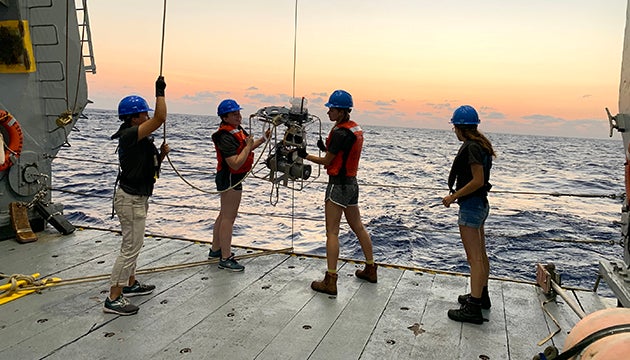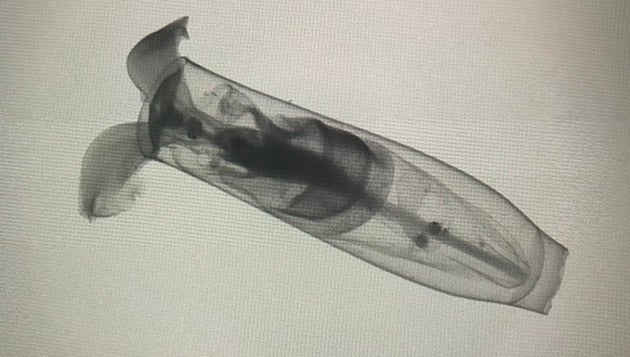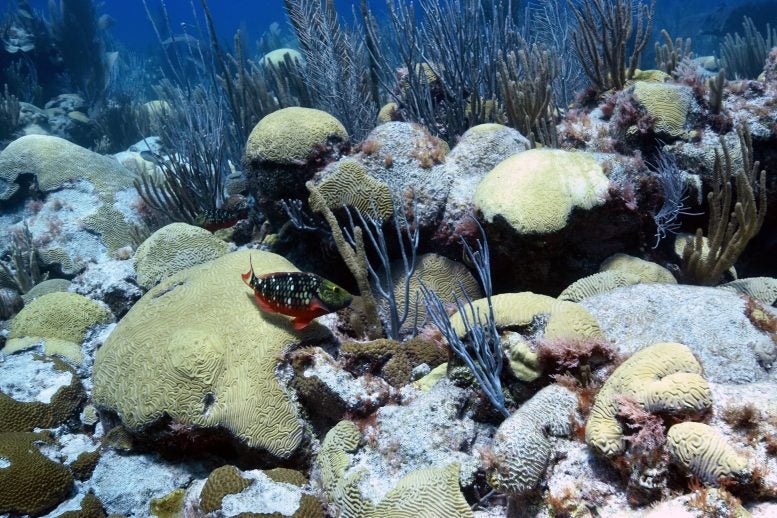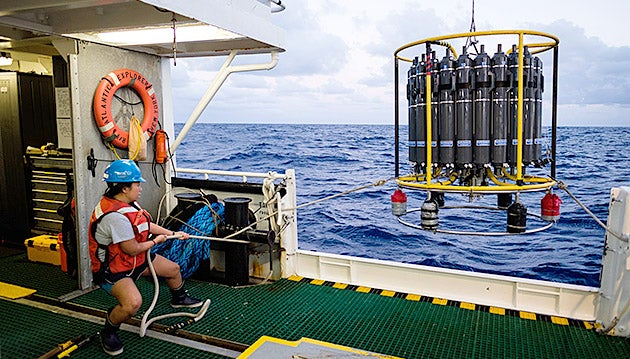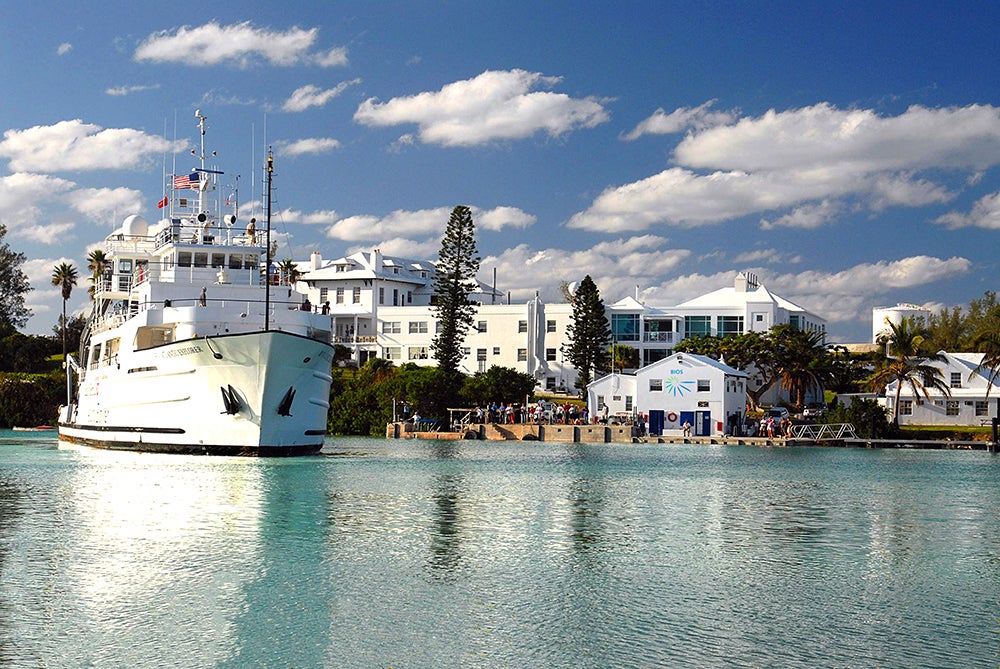Journal
The Sargasso Sea has become warmer and saltier, and the loss of oxygen and ocean acidification is accelerating
The subtropical oceans are getting warmer and saltier, losing oxygen, and gaining carbon dioxide, and in the recent decade, these changes have accelerated.
Read MorePlanktonic sea snails and slugs may be more adaptable to ocean acidification than expected
An evolutionary study finds that pteropods, or “wing-footed” sea snails and slugs, have faced acidified oceans in the past – and survived.
Read MoreUnderstanding the Movement Patterns of Free-swimming Marine Snails
New research relates shell shapes and body geometries and sizes with swimming abilities and sinking behaviors, which impact vertical migration and distribution.
Read MoreCan Pumping Up Cold Water from Deep Within the Ocean Halt Coral Bleaching?
New research shows that pulses of cooler deep water reduced heat stress responses in corals
Read MoreShedding Light on Coral Reefs
New research quantifies light availability on coral reef ecosystems
Read MoreThe Ocean Responds to a Warming Planet
New research indicates that upper ocean water masses are shrinking in a changing climate
Read MoreWhat is the maximum possible number of Atlantic tropical cyclones? See the year 2005
Climate simulations and analyses of Atlantic hurricane activity indicate that the record number of tropical cyclones that occurred in 2005 (28 storms) is close to the maximum number that might occur in this region, given existing climate conditions.
Read MoreHow many powerful storms can possibly form in the Atlantic each year?
Climate simulations and analyses of Atlantic hurricane activity indicate that the record number of tropical cyclones that occurred in 2005 (28 storms) is close to the maximum number that might occur in this region, given existing climate conditions.
Read More
